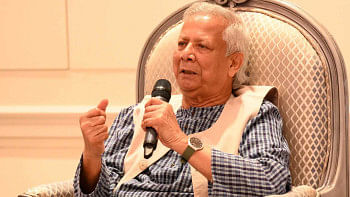Changing our lifestyle
Why do we need to change our lifestyle? What good will that do? What's wrong with smoking, an unhealthy diet, constantly tapping on the smartphone or working too much? Health is a pretty good reason to reconsider these habits, not only from an individual perspective but in consideration of population health.
Take smoking for example. The World Health Organisation very simply rationalises why one should quit smoking: "Tobacco kills half its users". So if you and I are active smokers, either one of us will die from it. Not only does smoking affect one's own health by contributing to a number of risk factors for respiratory and cardiovascular diseases, it also affects health of those in proximity of the smoker. Passive smoking, exposure to tobacco smoke as a result of people smoking around a person (also known as environmental tobacco smoke), adversely affects children's health even at a foetal stage, often leading to pre-term birth. Children exposed to passive smoking have greater risk of respiratory infections, wheezing, asthma, snoring (a form of sleep-disordered breathing) and so on. It's not even the exhaled smoke by the active smoker that contains the main danger, but the state of the smouldering cigarette that releases unfiltered toxic side-stream gases and particles that harbours the major harm. Research tells us that the cardio-vascular damage in terms of free radical-induced injury to the vascular system or thicker and stiffer arteries are startlingly similar between active and passive smokers.
What compels us to these addictions? How do we empower individuals to make the choice of changing unhealthy lifestyles? In Swedish primary health care settings, public health nurses use various techniques to influence health behaviour. One such method is motivational interviewing, which is mainly a set of conversations about behavioural change. It is not that we don't recognise the need to bring about change in our own health behaviour, and once in a while we do talk about changing. Motivational interviewing (MI) is about focused conversations with a person, venturing to help her into making a lifestyle change. It is a tool of empowerment that helps a person through structured conversations, helping her to actively talk herself into making a change, rather than only reflect on it. It is not that we don't understand the need for changing our unhealthy lifestyle. But it is ambivalence that holds us back, the wanting (or knowing the rationale) to change, yet not changing. MI is a tool to free oneself from such ambivalence.
Even if one decides to make lifestyle changes, it is not easy to make it happen. Bringing about a behavioural change requires a person to go through a number of stages of change (Prochaska et al, Health Psychology, 1994). Many of us may be trapped at the pre-contemplation stage when we either do not think about changing or wanting a change, thus choosing to live with the harmful lifestyle. MI becomes useful as a tool at this stage in initiating the discussion about a potential change. It continues to play a critical role when a person makes the transition from the pre-contemplation to the contemplation stage, now actively wanting to bring about a behavioural change, whether it is through exercising, eating healthy or quitting smoking. This is the crucial stage for the person to seek support. The following stages are preparation by strategising a way to modify health behaviour, including setting up a timeframe and going into action when the planning of the preparation phase is put into practice. Sustaining the change after a few months of the action phase entails maintenance of the health behaviour. The challenge at this stage is not to relapse into the previous unhealthy pattern.
All this is much easier said than done. Even if we believe in setting straight some of our unhealthy lifestyle, the thought of it can itself be a source of stress. Moreover, none of this can be achieved alone. In Bangladesh, where support from formal healthcare system for health promotion and disease prevention through behavioural change is practically non-existent, the informal network of friends, family members and colleagues can extend our support to help individuals turn over a new leaf for a healthy lifestyle. We can help ease the path for our close ones in making such a drastic move, be it quitting smoking, forcing impatient fingers to stay off the smartphone, being physically active or balancing between professional work and family life. Enriching public health is in our own hands.
The writer is Associate Professor of Public Health at Karolinska Institute in Stockholm, Sweden.

 For all latest news, follow The Daily Star's Google News channel.
For all latest news, follow The Daily Star's Google News channel. 








Comments